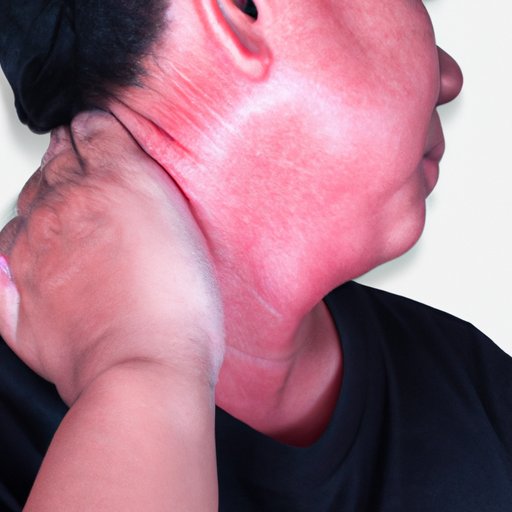
Can You Get Arthritis from Cracking Your Neck?
Neck cracking is a common habit for many people seeking relief from a stiff neck or simply because they enjoy the sensation. However, there is a myth that neck cracking can lead to arthritis. In this article, we will explore the science behind neck cracking and arthritis development, as well as debunk the myth and provide tips for safe neck cracking practices.
Fact vs. Fiction: Debunking the Myth of Arthritis Caused by Neck Cracking
First, it’s important to clarify the difference between cracking your neck and having arthritis. Neck cracking is the sound that occurs when you manipulate your neck joints to release pressure and tension. Arthritis, on the other hand, is a joint disorder that causes pain and inflammation in the joints.
Despite the lack of evidence, the myth that neck cracking can lead to arthritis has persisted. This may be because people often associate arthritis with joint cracking sounds, but the cause of the sound is actually gas bubbles in the synovial fluid within the joint.
The Science of Neck Cracking and the Risk of Arthritis Development
So what happens when you crack your neck? When you stretch or twist your neck, the space between your joints expands, which lowers the pressure within the joint. This decrease in pressure causes gases, such as nitrogen and carbon dioxide, to form bubbles in the synovial fluid. When you manipulate your neck in a certain way, these bubbles can burst, producing the cracking sound.
Despite the myth that neck cracking can cause arthritis, research has not found a direct link between the two. However, certain risk factors may increase your likelihood of developing arthritis from neck cracking. These include a history of joint trauma, inflammation, or arthritis; a pre-existing neck condition; and excessive or forceful neck cracking.
Is Cracking Your Neck Safe? What You Need to Know About Arthritis and Joint Damage
While a direct connection between neck cracking and arthritis has not been established, cracking your neck excessively or in an unsafe manner can lead to joint damage and other potential risks. Some potential risks of neck cracking include:
- Joint damage
- Stroke
- Nerve damage
- Muscle strain
- Pain and discomfort
If you do choose to crack your neck, it’s important to do so in a safe manner. Always move your neck gently and avoid excessively forceful or twisting motions. It’s also important to be aware of how often you are cracking your neck and to seek medical attention if you experience any discomfort or pain.
Neck Cracking and Arthritis: Understanding the Potential Risks and Benefits
While the myth of neck cracking causing arthritis is just that—a myth—there may be some potential benefits to neck cracking. For example, cracking your neck may help relieve tension and reduce pain or stiffness in the neck. However, it’s important to approach neck cracking with caution and to seek medical advice before attempting any self-treatment for pain or mobility issues.
Overall, the risks and benefits of neck cracking will vary depending on the individual and their specific situation. It’s important to evaluate the potential risks and to speak with a healthcare provider before attempting any treatments or movements.
The Connection Between Neck Cracking and Arthritis: Separating Truth from Hype
In summary, there is no direct link between neck cracking and arthritis. While the sound of cracking may be unsettling to some, it is typically harmless. However, excessive or unsafe neck cracking can potentially lead to joint damage or other risks. It’s important to approach neck cracking with caution and to seek medical advice if you have any concerns about your neck health.
Conclusion
Neck cracking is a popular habit that many people use to relieve tension and stiffness in the neck. However, the myth that neck cracking can cause arthritis is simply not true. While there may be some potential benefits to neck cracking, it’s important to approach this practice with caution and to seek medical advice before attempting any treatments on your own. By understanding the risks and benefits of neck cracking, you can make informed decisions regarding your neck health.




